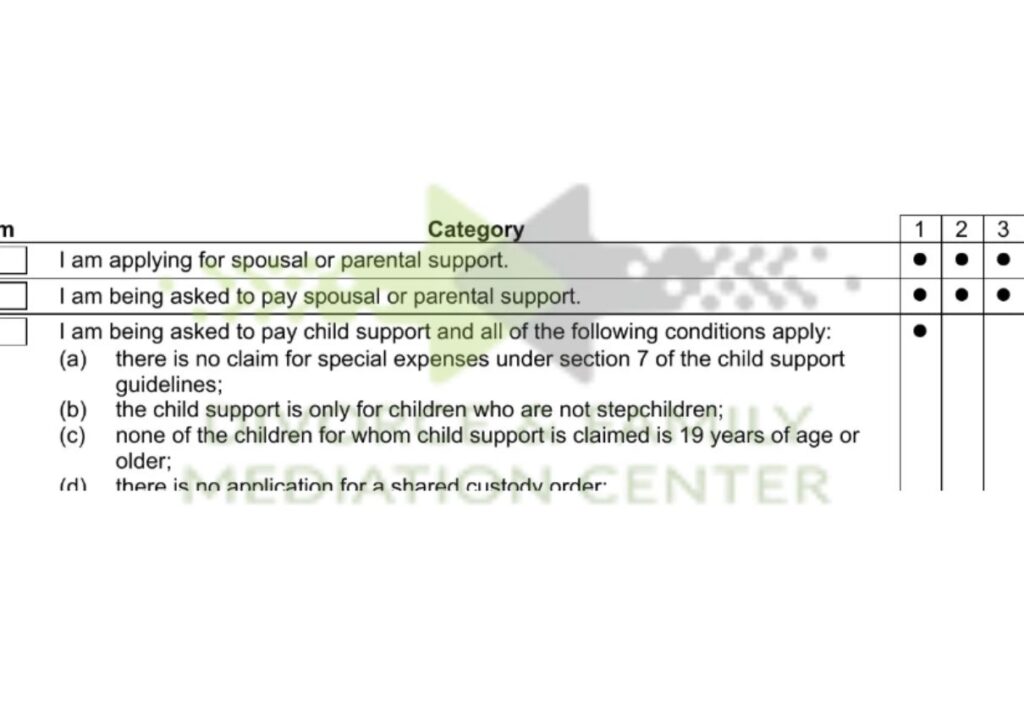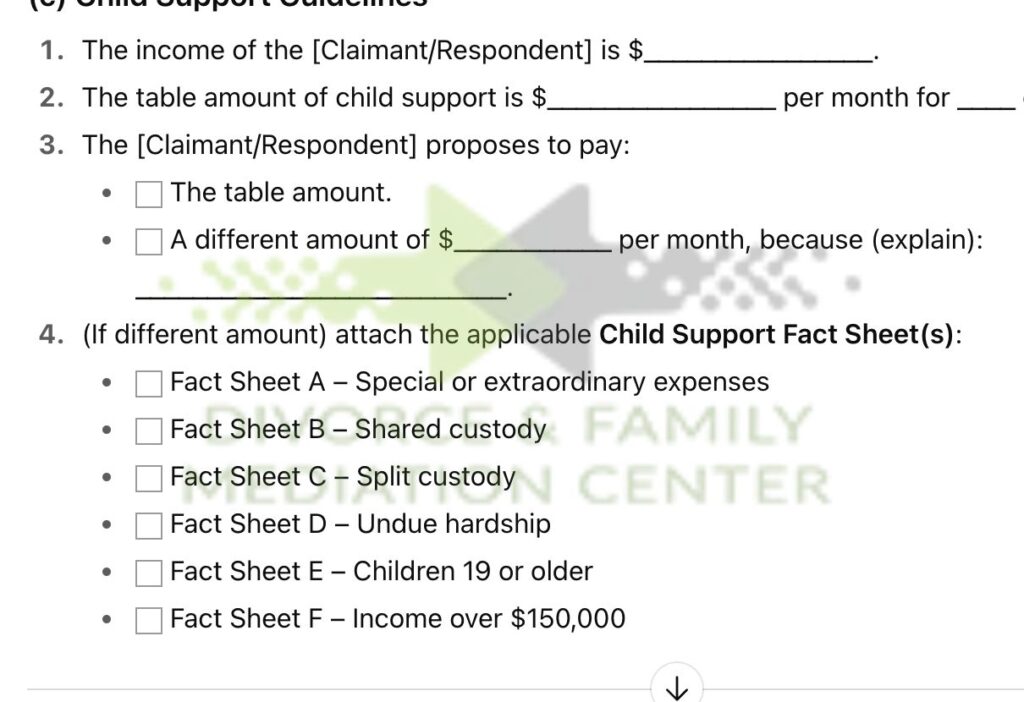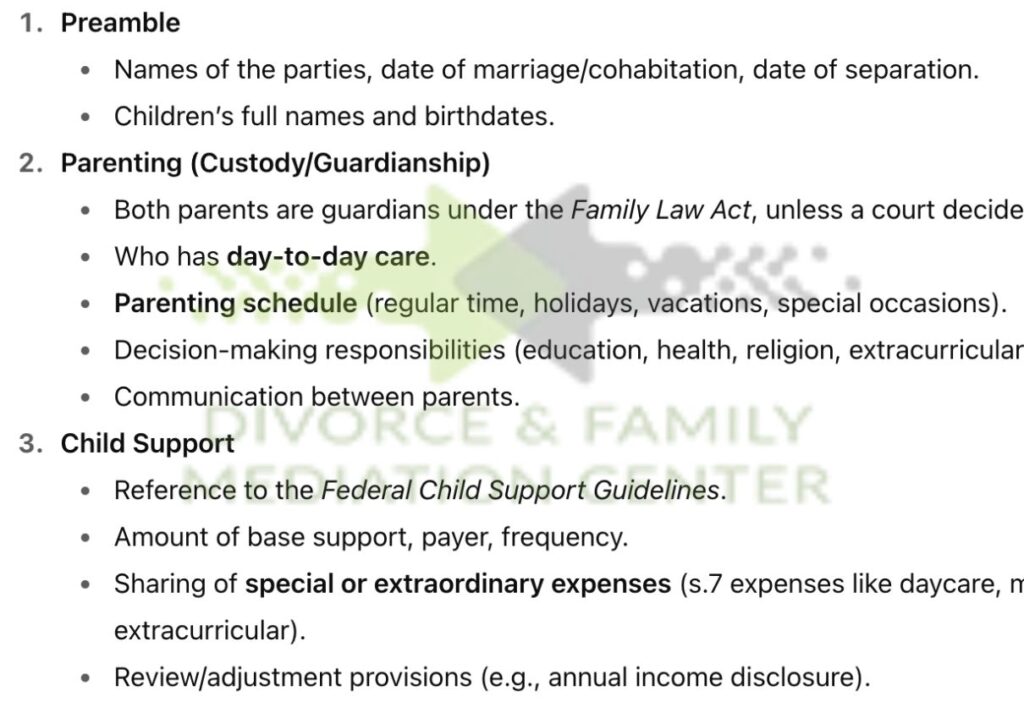Do it Yourself
Family Mediation Center Offers a “Do-It-Yourself” Separation Agreement — But Is It the Right Choice?
Family Mediation Center offers a “Do-It-Yourself” (DIY) separation agreement option. But let’s start with an important question: is this the best option for you?
In most cases, we believe it’s not. A DIY separation agreement is only suitable for specific situations and should only be considered under certain conditions.
For example, if your situation involves children, property, spousal or child support, inheritance, or other complex matters, a DIY agreement is unlikely to be sufficient or done correctly. It may only be appropriate if your separation is straightforward and without complications.
Another important factor is trust. If there is a lack of trust between you and your partner—or if you believe they may later challenge the agreement in court—a DIY approach is not advisable.
So, why are we offering a product we don’t always recommend?
The answer is simple: we want to support clients with limited financial resources. We understand that not everyone can afford a full-service legal or mediation process, and we want to offer an affordable alternative where possible.
All of our DIY agreements include one full mediation session. During this session, we explain basic legal concepts and help you understand what should be included in your agreement to ensure it’s as fair and effective as possible.
Just to be clear, we are not lawyers—we are mediators, and we do not provide legal advice.
At the end of the session, if we believe that mediation is not appropriate for your case, we may recommend that you speak with a family lawyer. When appropriate, we will refer you to trusted family lawyers who are part of our professional network.
PARENTING PLAN
Child Support
- Child support shall be determined in accordance with the Federal Child Support Guidelines.
- Based on Parent [A/B]’s income of $[amount], Parent [A/B] shall pay child support of $[amount] per month to Parent [A/B], commencing [date] and payable on the [day] of each month.
- The Parties shall share special or extraordinary expenses (s.7 expenses), including but not limited to childcare, extracurricular activities, and uninsured medical costs, in the following proportions: [Parent A %] / [Parent B %].
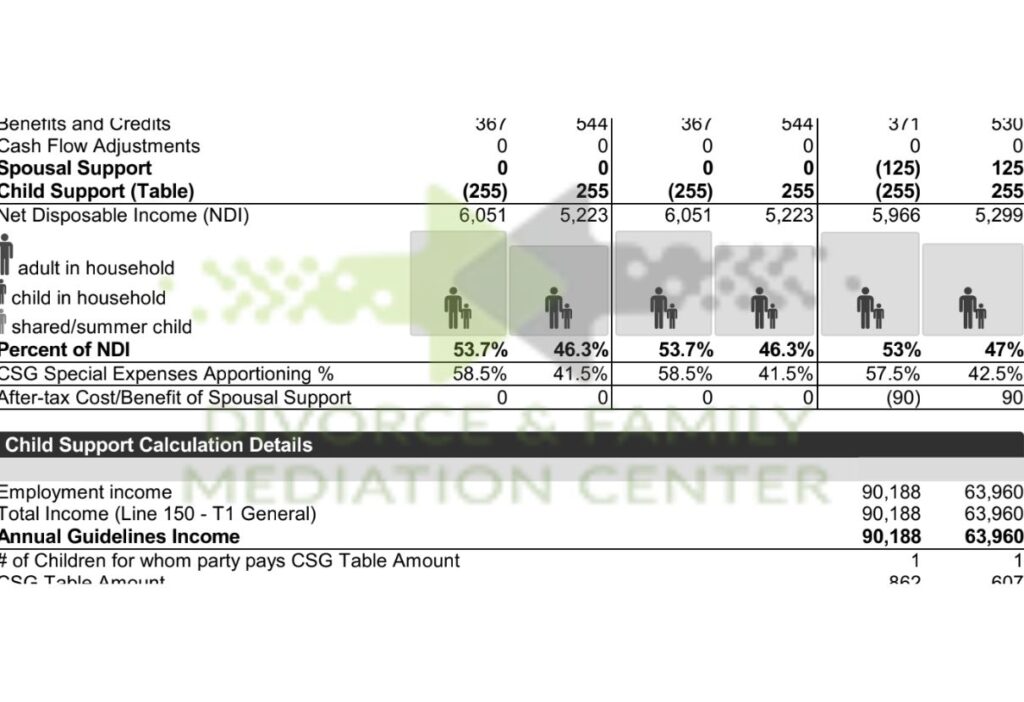
SEPARATION AGREEMENT
Legal Protection and Clarity It creates a legally binding document that clearly outlines each party’s rights and responsibilities, preventing future disputes and misunderstandings. Without one, you’re left relying on verbal agreements that can be difficult to enforce.
Financial Security The agreement establishes how assets, debts, and ongoing financial obligations will be handled. This includes property division, spousal support, child support, and who pays what bills. It protects both parties from unexpected financial burdens and ensures fair distribution of marital assets.
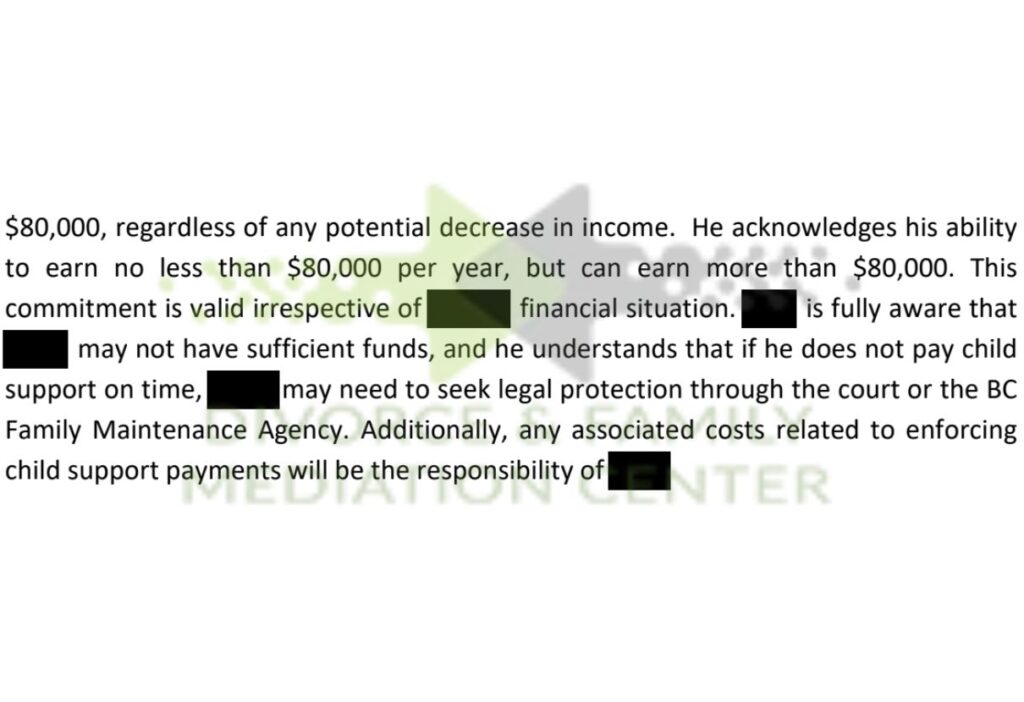
SWARM FINANCIAL DISCLOSURE
- Acknowledgement
Each party acknowledges that any separation agreement, parenting arrangements, or court orders will be based on the accuracy and completeness of the disclosure exchanged. - Consequences of Non-Disclosure
The parties understand and agree that: - Failure to provide full and honest disclosure may result in a separation agreement being set aside or varied by the court.
- A court may impose costs, fines, or other penalties if a party is found to have withheld, misrepresented, or falsified financial information.
- Non-disclosure may allow the other party to reopen issues of property division or support in the future.
